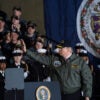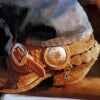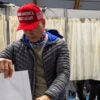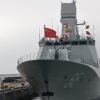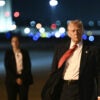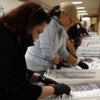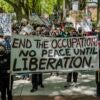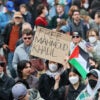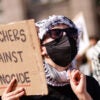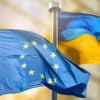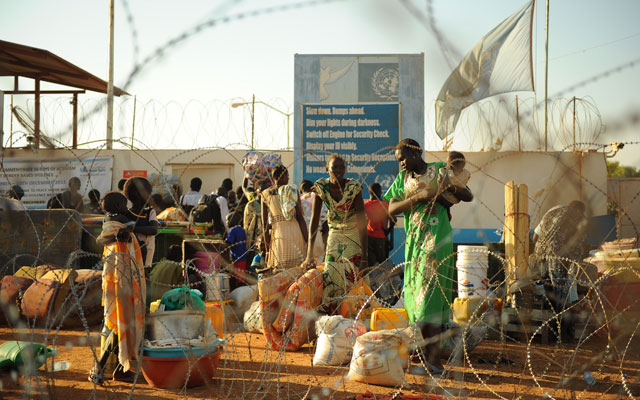
Residents of Juba arrive at the U.N. compound, where they sought shelter. (Photo: TONY KARUMBA/AFP/Getty Images/Newscom)
South Sudan is dangerously close to becoming embroiled in a civil war. Rival factions within the national army clashed in the capital, resulting in an attempted coup at the beginning of the week. Two Indian U.N. peacekeepers have been killed in the Jonglei state. Over 500 people have been killed in the clashes so far, according to estimates. Heritage’s Charlotte Florance explains what’s going on there.
What triggered the clashes?
The Daily Signal depends on the support of readers like you. Donate now
On December 15, fighting in the capital was initiated between rival factions in the army that culminated in the attempted coup of President Salva Kiir. The rival faction is led by former Vice President Riek Machar, who was dismissed from office by Kiir in July 2013. Machar and other senior politicians accuse Kiir of intolerance and dictatorship. Following the coup, Kiir exacerbated the situation further by donning full military fatigues on national television instead of civilian clothes, leaving no doubt about his intentions to use military force to quell the insurrection.
The differences between Kiir and Machar reflect the complex ethnic divisions in South Sudan. Kiir is Dinka (the largest ethnic group) and Machar is Nuer (the second largest ethnic group). South Sudan is dividing along to its ethnic lines and the rival groups are prepared to fight for control.
Will it get worse before it gets better?
The South Sudan government has lost control over the Jonglei state to Machar’s forces, according to a government spokesperson. During an attack at the U.N. base in Akobo in Jonglei, two Indian peacekeepers were killed. Some 30 members of the Dinka had taken refuge at the base and were reported to be the targets of the attack. As long as Machar continues to call on the army to remove Kiir from the presidency, Kiir and Machar will continue to clash. Kiir insists the clashes are over power and not ethnicity, but as long as the groups organize along ethnic lines, tensions will continue. The instability is further exacerbated by arms proliferation, mostly from years of war with Sudan.
What is the U.S.’s involvement?
Due to heightened security, the U.S. evacuated 120 embassy personnel and foreign diplomats from Juba on Wednesday, and the State Department is urging all U.S. citizens to leave South Sudan immediately. President Obama has also notified Congress that 45 military personnel equipped for combat were deployed to Juba from Djibouti to protect U.S. citizens and property.
The U.S. continues play an integral role in South Sudan as one of three official guarantors of the peace agreement that paved the way for the referendum on South Sudan’s independence from Sudan. Given the prospects for a civil war based on ethnic divisions, the U.S. has a central role to play, ensuring the peace agreement does not fall apart, in coordination with the two other guarantors, Great Britain and Norway, and regional partners, Kenya, Uganda, and Ethiopia.
Can the South Sudanese avoid further violence?
For decades, South Sudan only knew violence and oppression, but the trajectory of history changed with independence, creating a path for peace. South Sudan’s future is up to its people. They should once again demand peace and political reconciliation, this time from Kiir and Machar.


